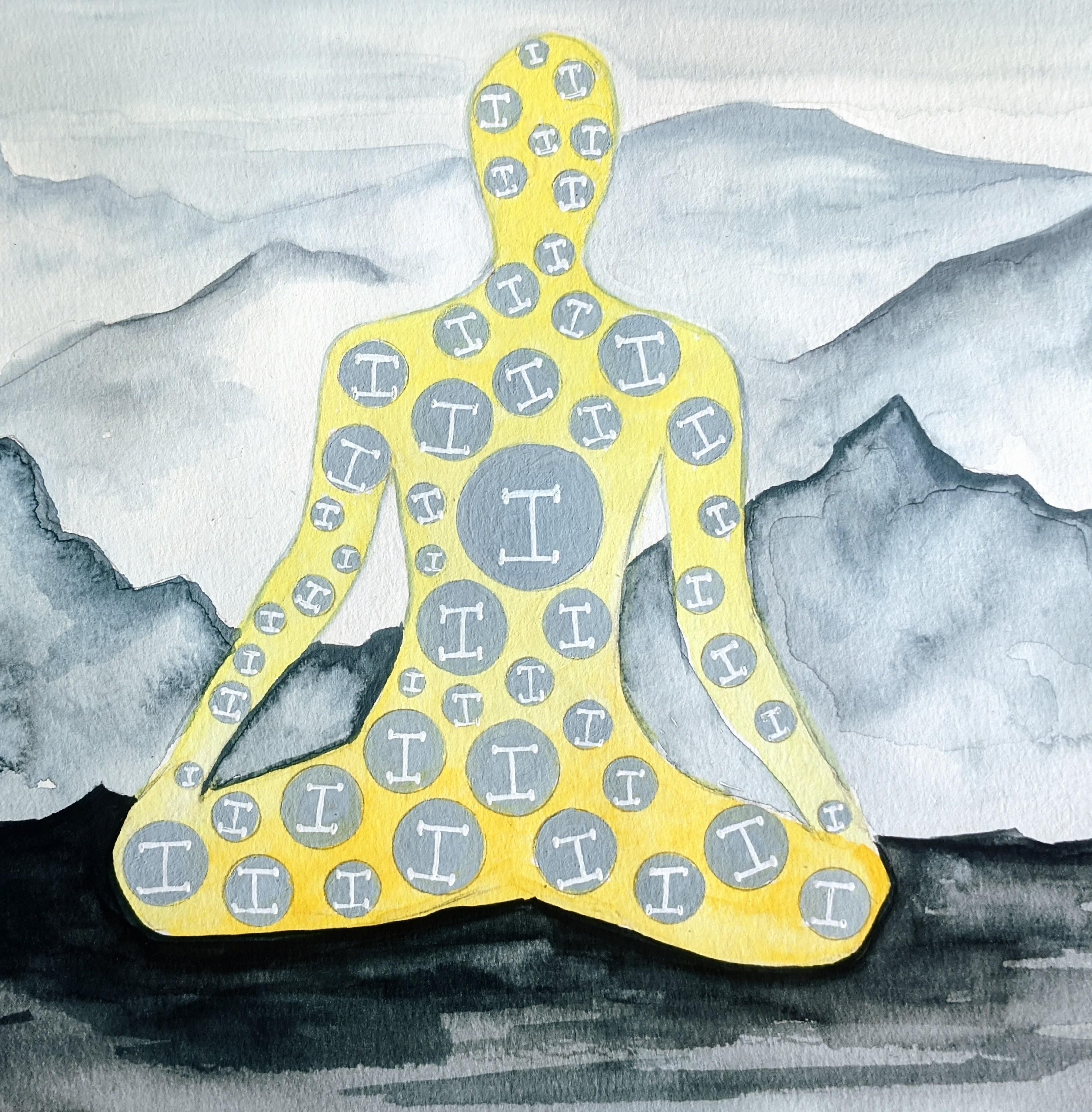Parliament Of Subconscious Minds

IMAGE OF THE WEEK
We are grateful to Rupali Bhuva for offering this hand-made painting for this reading.

You may object to the idea that your sense of being a self is a mere construct. After all, it feels very real. How can we reconcile this powerful sense of self with the idea that we're just a collection of sub-minds? Meditation is all about investigating your actual experience, so I invite you to notice how, when something happens, the "I" gets imputed only after the fact.
Say a memory comes up as you're walking with a friend. Notice how it's only after the memory arises that you turn to your friend and say, "I just remembered something." Or consider how an emotion like sadness can be present long before the thought "I feel sad" arises. In each example, and in almost every other experience, what gets attributed (after the fact) to the "I" is actually the activity of various sub-minds. To make this even clearer, consider what happens when we face a dilemma or have a difficult decision to make. You'll discover that, here as well, the "I" arrives on the scene only after the conflict has arisen. Then, as the conflict continues, the "I" seems to fret as various thoughts and feelings arise from different sub-minds in support of one option or another. Even after a decision has apparently been reached, the "l" might still experience doubt or hesitation if some sub-minds aren't convinced. But sooner or later, seemingly from nowhere, a firm decision arises.
That "nowhere" is none other than the unconscious mind; the decision was made by the collective interaction of some of those unconscious sub-minds. After the conflict has been resolved comes the thought, "I have decided." In all these situations, the narrating mind just takes the ongoing flow of information in consciousness and organizes it into a meaningful story, attributing everything to the imaginary entity called "I." The discriminating mind then mistakes this "I" for an actual individual, rather than a product created by a collection of sub-minds.
It's as if a room full of people all named George were having a debate, but all you received were reports that "George said this" and "George said that." Like the unconscious discriminating mind receiving information from the narrating mind, you would probably mistake the group for a single, very conflicted individual named "George." "Your" decisions, and any subsequent intentions and actions, don't originate from some Self. They are the result of a consensus among many unconscious sub-minds exchanging information via the conscious mind.
The excerpt above is from the book 'The Mind Illuminated'.
SEED QUESTIONS FOR REFLECTION: How do you relate to the notion that our 'discriminating minds' mistakenly attribute 'I' to an individual instead of 'a product created by a collection of sub-minds'? Can you share an experience of a time you became aware of unconscious sub-minds exchanging information via the conscious mind? What helps you be aware of how you are attributing 'I'?